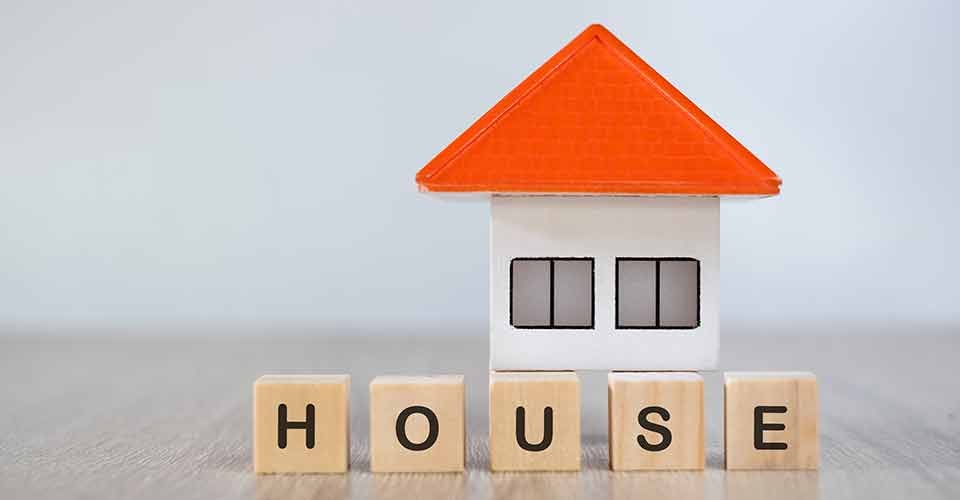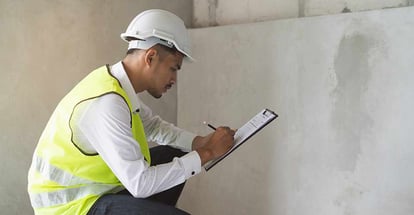The State of The Florida Housing Market in 2024
As we approach the latter part of the year, it's an opportune moment to examine the current state of Florida's housing market in 2023 and anticipate its trajectory leading into 2024.
We'll discuss crucial elements such as interest rates, property values, available listings, and the average duration properties stay on the market, providing insights for potential Florida homebuyers.
What Is The State Of The Housing Market In 2023?
Most experts would agree - the housing market in Florida in 2023 is, without a doubt, facing its challenges. Multiple factors contribute to this current state, which we'll explore further below.
Interest Rates
Florida, like the rest of the U.S., has witnessed a whirlwind of housing activities.
With many placing all-cash offers and some even exceeding the asking price, it's evident that the market has been robust. However, considering most Floridians rely on mortgages, the interest rates play a pivotal role.
Federal Reserve's comments suggest a mixed perspective on the economic progress and inflation control. It seems probable that we'll see at least one more hike in the federal funds rate this year.
Predictions for the end-of-year interest rates are varied, with NAR forecasting rates around the mid-6% range and Fannie Mae at approximately 6.6%.
Real Estate Prices in Florida
Nationally, real estate prices haven't surged dramatically this year. This is attributed to the sharp rise post the 2020 pandemic lockdowns.
However, regional trends are crucial. For instance, while the national average price increase was around 3.4% YoY as of July 2023, Florida's local dynamics could differ.
Forecasts suggest Fannie Mae expects a 3.5% to 3.9% price rise by year-end, while Freddie Mac has a more conservative prediction of a 0.8% increase over the next 12 months.
Home Inventory in Florida
Currently, the inventory for available homes is somewhat limited. Generally, existing homes are more sought after than new constructions due to their affordability.
Fannie Mae and NAHB's predictions on housing starts vary slightly, with numbers revolving around 1.4 million, a mix of single-family and multifamily units.
For context, a balanced market usually has a 6-month inventory. As of now, the existing home inventory stands at 3.1 months, indicating a seller's market. New home inventory is somewhat better, positioned at 7.4 months.
Time on the Market
Property duration on the market is a telling indicator. Nationally, the average listing duration was 38 days as of July.
This duration provides potential Florida buyers with a negotiation vantage point, especially if local figures differ.
The Federal Reserve's Influence on Florida's Market
The Federal Reserve has been central in influencing interest rates. Through the control of the federal funds rate, which dictates interbank overnight borrowing rates, they can indirectly impact consumer borrowing costs.
The recent rate hikes, influenced by inflation concerns, aim to moderate spending, which could eventually stabilize prices.
In addition, the Federal Reserve has been selling off mortgage-backed securities acquired during the pandemic. This action, combined with the federal funds rate adjustments, tends to push interest rates upward.
Yet, despite these measures, a significant drop in housing prices hasn't been observed, largely due to the inventory scarcity prevalent across Florida and the broader U.S.
In essence, for those observing or participating in Florida's housing market, understanding the Federal Reserve's actions and the broader economic trends is crucial to making informed decisions.

Will Home Prices Drop in a 2023 Recession?
Anticipating future housing market movements requires careful analysis and consideration of multiple factors.
While many experts don't foresee a complete housing market crash in 2023, there are genuine concerns about affordability.
The combination of rising interest rates and elevated home prices has created barriers for many, especially those entering the market for the first time.
Homeowners today, having accumulated considerable equity in their properties, stand in a more resilient position compared to previous downturns.
The pressing issue isn't a potential crash, but rather the daunting challenges faced by potential buyers trying to find affordable housing in a market where supply struggles to meet demand.
As always, local dynamics will play a crucial role, and potential buyers should remain informed about their specific region's trends.
Tips For Buying And Selling Homes In Florida in 2023
In Florida, as with other locales, the real estate market is largely influenced by location. Although some national trends from 2020 linger, specific Florida markets have experienced their unique shifts.
Buying A Home In Florida in 2023
-
Obtain Pre-approval - A preapproval, such as that from MakeFloridaYourHome®, is based on a brief credit check and verification of documents like W-2s, 1099s, and tax returns. Such documentation reassures sellers and agents of your financial readiness.
-
Make Thoughtful Offers - Beyond the asking price, understand Florida's typical earnest money expectations and the standard contingencies. Consult with a local agent on any unique regional practices or timings.
-
Prioritize Home Inspection - Always get a home inspection. This gives you an insight into the property's condition, enabling you to negotiate repairs, adjust the offer, or reevaluate your decision.
-
Secure Your Interest Rate - With potential rate hikes on the horizon, it's wise to lock in your mortgage rate early. While Florida's mortgage rates follow broader trends, be attentive to local nuances.
- Account for Closing Costs - In Florida, typical closing costs range from 3% to 6% of the home's price. These include appraisals, title insurance, and other fees. Explore ways to minimize these expenses, either through negotiations or lender offers.
Selling A Home In Florida in 2023
-
Address Repairs - Before listing your Florida home, address major repairs, especially those related to safety. Decide on a budget for pre-listing improvements to enhance appeal.
-
Make a Memorable First Impression - Florida buyers are influenced by first impressions. Proper staging helps potential buyers visualize the space. High-quality photos are essential for online listings.
- Set the Right Price - Working with a local agent can help you gauge the property's fair market value. Pricing your Florida home correctly can attract multiple offers and potentially ignite competitive bidding.
Remember, Florida's real estate market might have specific trends or nuances that differ from national averages. Always consult with local professionals to navigate the market effectively.
Are We Headed Towards Another Housing Crash?
The prospect of another housing crash is a topic of frequent discussion and concern, especially given the memories of the 2008 financial crisis.
However, according to the majority of industry experts and housing economists, a crash in the near future seems unlikely.
There are several compelling reasons which underscore this sentiment:
Low Inventory
One of the significant factors keeping the market afloat is the prevailing low inventory of homes.
The current demand for houses is outstripping the supply, which naturally pushes prices up and stabilizes the market.
Until we see a surge in available properties, this supply-demand dynamic will continue to keep the market steady.
Lack of New-Construction Housing
The construction sector has not been producing new homes at a rate that can satisfy the current demand.
Various reasons, including increased material costs, labor shortages, and land scarcity, have contributed to this slowdown in new housing starts.
Without an adequate influx of new homes, the market remains tilted in favor of sellers, making a crash less probable.
Large Amounts of New Buyers
A new generation of homebuyers, especially millennials, are actively entering the market. Their participation ensures a steady demand, further bolstering prices and market stability.
Strict Lending Standards
One of the causes of the 2008 crisis was the lax lending standards that allowed many unqualified buyers to secure mortgages.
Since then, there's been a considerable tightening in lending criteria. Modern borrowers are more thoroughly vetted, reducing the risk of widespread mortgage defaults.
Fewer Foreclosures
Post the 2008 financial crisis, many homeowners faced foreclosures, which flooded the market with properties and plummeted prices.
The current scenario is different; with strict lending standards and increased home equity, fewer homeowners are finding themselves in positions where they're at risk of foreclosure.
In conclusion, while the housing market will undoubtedly face fluctuations and challenges, the current conditions indicate resilience and stability.
Factors like low inventory, stringent lending standards, and the continued demand from new buyers collectively act as bulwarks against a potential crash.
As always, it's essential to stay informed and understand that real estate dynamics can vary greatly depending on the region or locality.
Understanding the Housing Market - Frequently Asked Questions
Before concluding, let's address some common inquiries you might have.
Can we expect a drop in home prices in 2023?
While no one can predict the future with certainty, national data isn't always reflective of local real estate trends. Some national indicators suggest a slowing growth in home prices or even a decline.
However, the local dynamics in your region will determine the true trajectory. It's essential to assess the market specifics of your particular area.
Will interest rates see a decline in 2023?
Predicting exact interest rate movements is challenging. Rates fluctuate frequently, even within a single day.
Although the Federal Reserve's actions can influence these rates, a significant drop seems improbable for 2023 based on current Federal Reserve forecasts.
How do interest rates influence home prices?
In a market with balanced inventory levels—approximately 6 months of supply compared to sales pace—home prices might stabilize or even decrease.
However, as of June 2023, the available home supply is just over half of this ideal balance. This inventory shortage means buyers might encounter higher prices irrespective of the prevailing interest rates.
Ultimately, the balance of supply and demand has a more pronounced effect on pricing than interest rates.
Is the present market in favor of buyers or sellers?
On a national scale, it seems sellers have the upper hand.
Yet, there are regions where prices are dipping and inventory is more abundant. Instead of relying solely on broad trends, focus on local market insights.
Collaborating with a real estate agent can provide clarity on the state of the market in your specific area.
In Summary
Currently, the housing landscape across the nation seems to lean in favor of sellers, largely due to the limited inventory driving up sale prices.
However, those considering selling should bear in mind that they'll also be entering the market as buyers, facing the same scarcity challenges. Furthermore, heightened interest rates might deter potential sellers from listing their homes.
On the brighter side, there are indications of a shifting market. Properties are staying listed longer than they did this time last year.
Plus, some previously sizzling markets from 2022 are witnessing a drop in prices, hinting at a possible return to a more balanced market in the near future.
It's crucial to remember that real estate trends are often region-specific, so national trends might not always reflect the situation in your locality.
For those contemplating a home purchase, now might be a good time to dive in. Our team is ready to assist you with your home-buying journey. Start your application online with us today!
With over 50 years of mortgage industry experience, we are here to help you achieve the American dream of owning a home. We strive to provide the best education before, during, and after you buy a home. Our advice is based on experience with Phil Ganz and Team closing over One billion dollars and helping countless families.

About Author - Phil Ganz
Phil Ganz has over 20+ years of experience in the residential financing space. With over a billion dollars of funded loans, Phil helps homebuyers configure the perfect mortgage plan. Whether it's your first home, a complex multiple-property purchase, or anything in between, Phil has the experience to help you achieve your goals.


 By
By  Edited by
Edited by 






